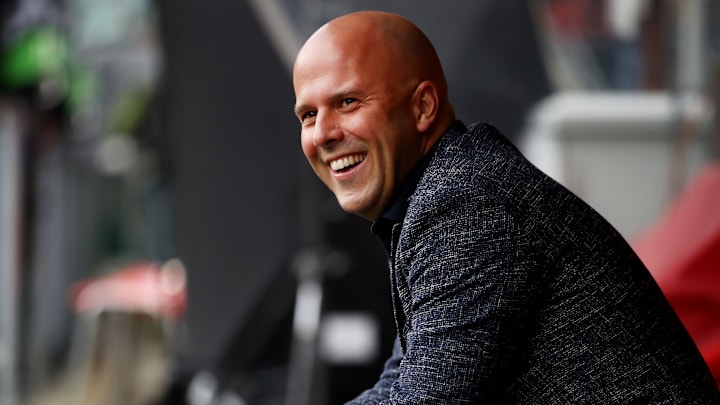As Liverpool pursues quadruple aspirations in the 2024-25 season, maintaining a six-point lead over Arsenal in the Premier League, progressing in the Champions League knockout stage, and competing in domestic cup competitions, the club’s choice to forgo January transfers has ignited discussion.
Critics suggest that the absence of new signings could lead to stagnation; however, the Reds’ trust in their current squad, youth development, and long-term vision under Arne Slot reflects a calculated risk based on confidence rather than complacency.
The Quiet Winter Window: A Statement of Strength
Liverpool’s inactivity in January stemmed not from financial limits but from strategic schemes. The club’s self-sustaining model emphasizes prudence over haste, a philosophy endorsed by Liverpool’s managerial phase’s confidence in the squad’s depth.
With no major injuries and the bench strength, Liverpool found no urgent reason to make squad changes.
Instead, they concentrated on loaning out promising academy players—Stefan Bajcetic, Jayden Danns, and Calvin Ramsay—to expedite their development.

This plotted approach reflects last summer’s strategy, where Federico Chiesa remained the only major signing.
However, Slot’s ability to modify existing players, such as Ryan Gravenberch’s evolution into a leading holding midfielder, has been remarkable.
The Dutch advocates for fostering internal competition that enables fringe players like Harvey Elliott, Connor Bradley and James McConnell to excel in high-pressure Champions League games.
Since joining in June 2024, Slot has emphasized gradual improvement rather than high-profile acquisitions. His trust in Darwin Nunez, who is frequently doubted for inconsistent finishing, offered valuable returns after multiple trials of chance missing.
Despite only five league goals since October, Nunez's tireless pressing and link-up abilities have been crucial in dismantling defenses, as demonstrated in his key contributions against Brentford.
Meanwhile, the resurgence of Cody Gakpo and Luis Díaz’s flexibility as a “false nine” underscores Slot’s innovative tactics.
The squad’s resilience is further confirmed by their performance in Europe. Even while rotating nine starters against PSV Eindhoven, Liverpool’s blend of academy graduates and experienced players played well enough in a tough environment to win.
As Slot remarked, “Performing doesn’t always mean goals and assists,” highlighting the collective mindset that fuels this team.
The Looming Questions: Defense, Defense, Defense
While Liverpool’s attack and midfield are thriving, concerns about defensive weaknesses persist. Andy Robertson's lack of a natural left-back successor and Virgil van Dijk’s expiring contract signals danger.
Kostas Tsimikas has elevated his defense but seems not to be a long-term successor for both. Moreover, if Ibrahima Konaté or Jarell Quansah suffer injuries, the defense could be exposed, especially against aggressive opponents, a weakness that became evident during last season’s injury crisis.

However, the club is aware of these fragilities. The pre-agreed acquisition of Giorgi Mamardashvili, Valencia’s outstanding goalkeeper who historically helped his country Georgia advance to the Round of 16 in the European Championship last year, indicates forward-thinking to eventually replace Alisson.
Interest in Ajax’s Jorrel Hato and Bournemouth’s Milos Kerkez suggests potential summer moves to strengthen the defense.
The major concern lies with Mohamed Salah’s contract situation. With his contract set to expire in 2025, Liverpool faces a pivotal decision: extend his contract to secure his legacy or reinvest his possible transfer fee in younger talent.
The same dilemma also applies to van Dijk and Trent Alexander-Arnold, whose futures will influence the club’s direction.
The Road Ahead: Balancing Present Glory and Future Vision
Liverpool’s strategy relies on two crucial elements: short-term success and long-term growth.
The choice to keep Alexander-Arnold amid Real Madrid’s interest shows Liverpool’s determination to preserve the all-around competitiveness, while the academy’s success—represented by Trey Nyoni and Rio Ngumoba who orchestrated a stunning comeback win 3-2 over Chelsea in the U18 Premier League Cup semi-finals.
While critics may keep arguing that rivals like Manchester City and Arsenal are bolstering their squads, Liverpool’s approach thrives on patience.
As James Pearce mentioned, the club’s summer plans include pursuing midfield dynamo Martin Zubimendi and addressing positional necessities, ensuring they “act when opportunities arise.”
